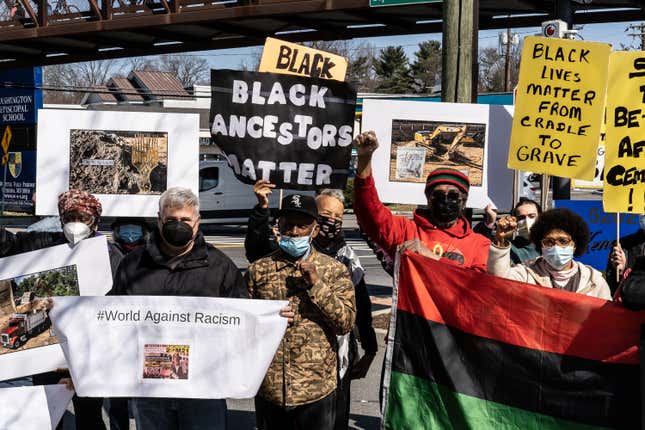
A new article by NPR reveals the fight Black folks in Maryland have undergone to preserve a historically Black cemetery. Currently, Moses Macedonia African Cemetery on River Road in Bethesda is in danger of disappearing.
The cemetery, which was originally named White’s Tabernacle 39, represents a vital part of Black history. Back in the 1700's, there were numerous plantations located alongside River Road. After emancipation, however, Black people founded a community that thrived for nearly 100 years.
They constructed houses, a school, a church and a cemetery. In the late 1950s, developers bulldozed it to make way for a high-rise building as well as a parking lot. Technically, the site is owned by Montgomery County’s Housing Opportunities Commission (HOC), which serve as the county’s housing agency.
Now Moses Macedonia African Cemetery is at the heart of a legal battle between the descendants of the River Road community and the Housing Opportunities Commission. Officials are pushing to sell the landmark to a commercial developer. However, Black folks want to preserve the property which honors their slave ancestors.
It is all that remains from that era. After years of talks with the county to preserve the cemetery, minister Marsha Coleman-Adebayo started the Bethesda African Cemetery Coalition in 2019. The coalition wound up filing a lawsuit against the HOC when it tried to sell the land to a developer for $51 million dollars.
The document states that nearly 500 bodies of enslaved people as well as their family members are buried there. Last September, the HOC insisted that the cemetery no longer has any human remains. According to the court transcript, Frederick Douglas—a lawyer defending the agency—explained that “It’s an assumption. We can’t look at that parking lot and say, here lies the remains.”
The case is still ongoing.